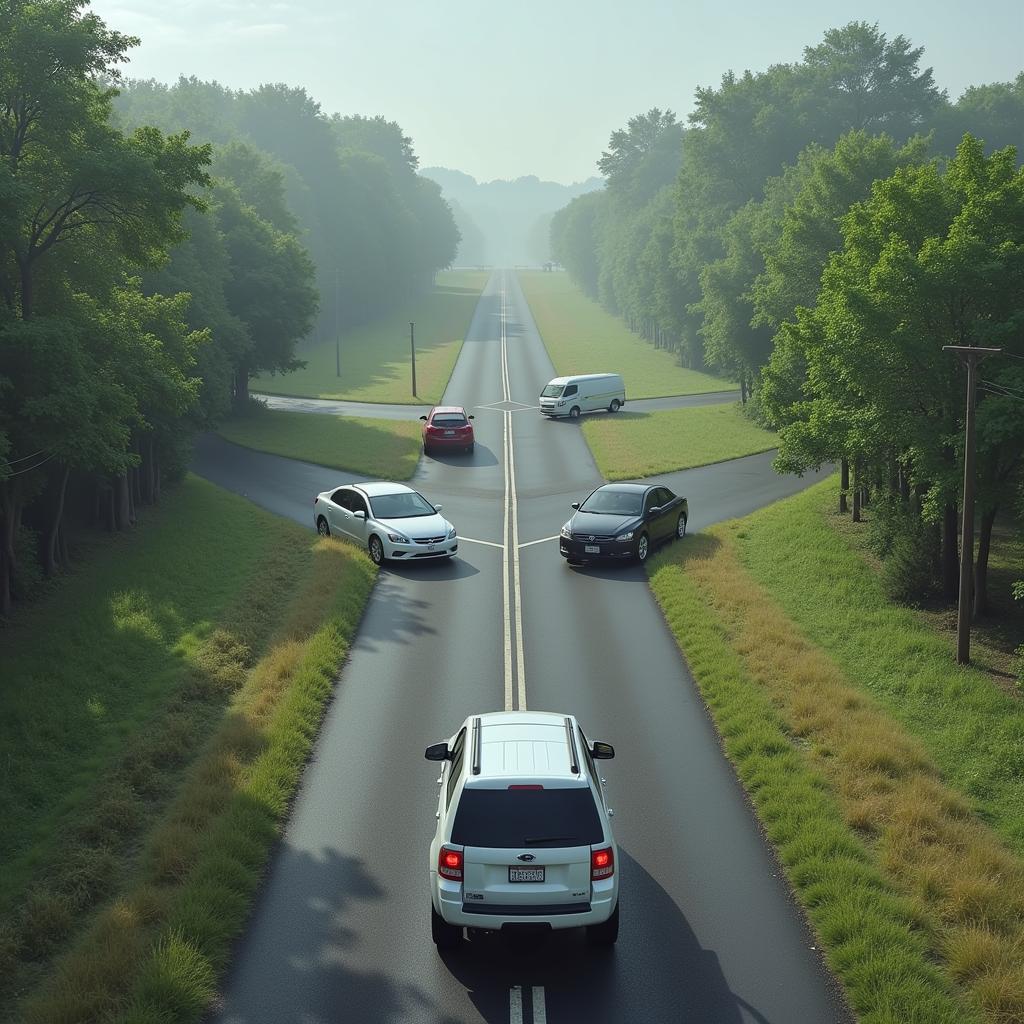The Trolley Car Problem Harvard has sparked countless debates in ethics classrooms, forcing us to confront difficult choices and their potential consequences. But what does this thought experiment have to do with the cars we drive every day? More than you might think, especially as we move towards an era of self-driving vehicles. This article delves into the trolley car problem and its implications for the future of automotive technology.
What is the Trolley Car Problem?
The trolley problem presents a classic ethical dilemma: a runaway trolley is barreling down the tracks towards five unsuspecting people. You have the power to divert the trolley onto a side track, saving the five, but in doing so, you condemn one individual on that side track. Do you pull the lever? This seemingly simple scenario raises complex questions about morality, responsibility, and the value of human life.
The Trolley Car Problem Harvard: A Breeding Ground for Ethical Discourse
Harvard University, a prominent center of philosophical debate, has been instrumental in dissecting the trolley problem. Scholars at Harvard and beyond have explored its nuances, presenting variations to challenge our intuitive moral responses. These include scenarios with fat men, organ donors, and loop tracks, each pushing the boundaries of our ethical reasoning.
Variations on the Trolley Car Problem
- The Fat Man Scenario: Would you push a large person onto the tracks to stop the trolley and save the five?
- The Organ Donor Scenario: Five people need organ transplants. A healthy individual walks into the hospital. Is it ethical to sacrifice the one to save the five?
- The Loop Track: The side track loops back to the main track. One person is positioned on the loop, and their presence will stop the trolley before it reaches the five. Do you divert the trolley?
From Philosophy to Automotive Engineering: The Trolley Car Problem and Autonomous Vehicles
The trolley problem, once confined to academic discussions, has become increasingly relevant in the development of autonomous vehicles. How should self-driving cars be programmed to react in unavoidable accident scenarios? Should they prioritize the safety of their occupants, or should they make decisions that minimize overall harm, even if it means sacrificing the passengers? These are critical questions that engineers and ethicists must address.
Programming Ethical Algorithms: A Complex Challenge
Programming morality into a machine presents a formidable challenge. How do we translate complex ethical principles into algorithms that can guide a car’s split-second decisions? The trolley car problem Harvard highlights the difficulty of defining and implementing ethical rules in a consistent and predictable way.
 Autonomous Vehicle Facing an Ethical Dilemma
Autonomous Vehicle Facing an Ethical Dilemma
What are the Ethical Implications of Autonomous Vehicles?
The trolley car problem forces us to consider the ethical implications of delegating life-or-death decisions to machines. Who is responsible when an autonomous vehicle makes a decision that results in harm? Is it the programmer, the manufacturer, or the owner of the vehicle? These legal and ethical questions remain largely unresolved.
The Future of Autonomous Vehicles and Ethical Decision-Making
The future of autonomous vehicles depends on our ability to navigate the complex ethical landscape presented by scenarios like the trolley car problem. Ongoing dialogue between engineers, ethicists, policymakers, and the public is crucial to developing a framework for responsible autonomous vehicle development.
“The trolley problem highlights the limitations of purely utilitarian approaches to ethics. We must consider not only the number of lives saved but also the principles upon which those decisions are based,” says Dr. Emily Carter, a leading expert in artificial intelligence and ethics.
Conclusion: Navigating the Ethical Road Ahead
The trolley car problem Harvard provides a valuable framework for understanding the ethical challenges posed by autonomous vehicles. As we move forward with this transformative technology, we must engage in thoughtful and informed discussions about the values we want to embed in these machines. Connect with AutoTipPro at +1 (641) 206-8880 or visit our office at 500 N St Mary’s St, San Antonio, TX 78205, United States for more information and support.
FAQ:
- What is the main ethical dilemma in the trolley car problem?
- How does the trolley car problem relate to self-driving cars?
- What are some variations of the trolley car problem?
- What challenges does programming ethics into autonomous vehicles pose?
- Who is responsible when a self-driving car causes an accident in an unavoidable scenario?
- How can we ensure the ethical development of autonomous vehicles?
- What role does Harvard University play in the discussion of the trolley car problem?






Leave a Reply